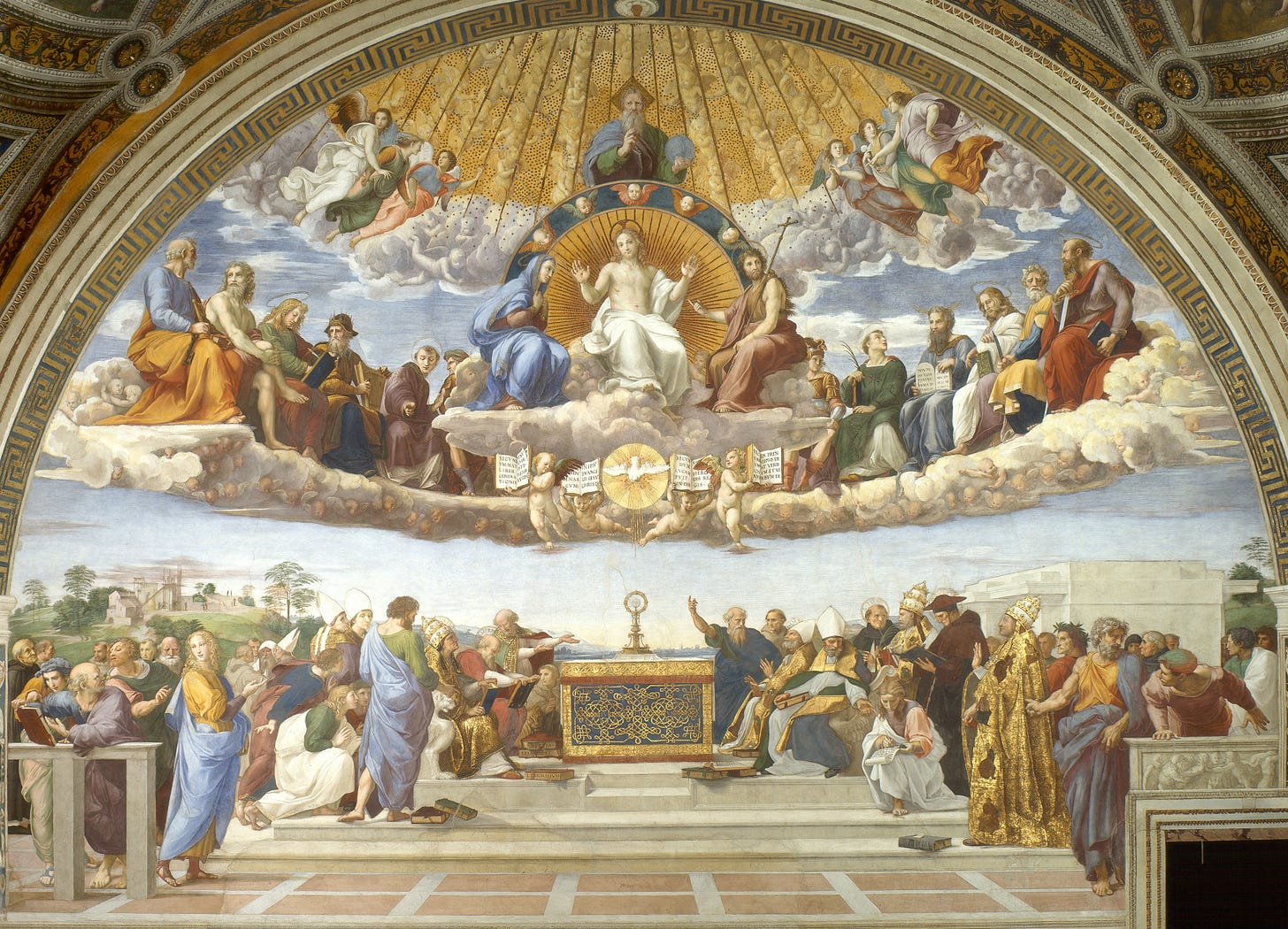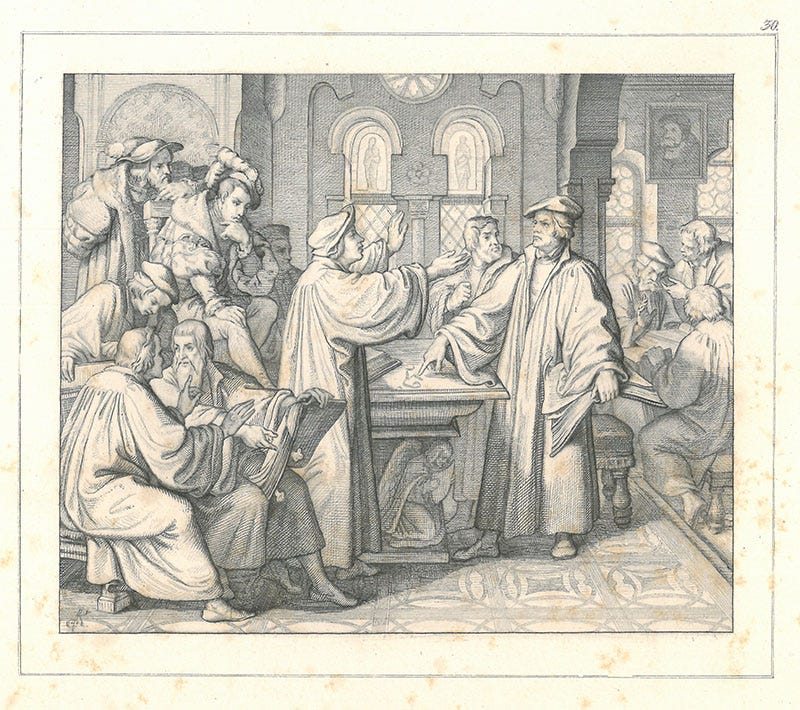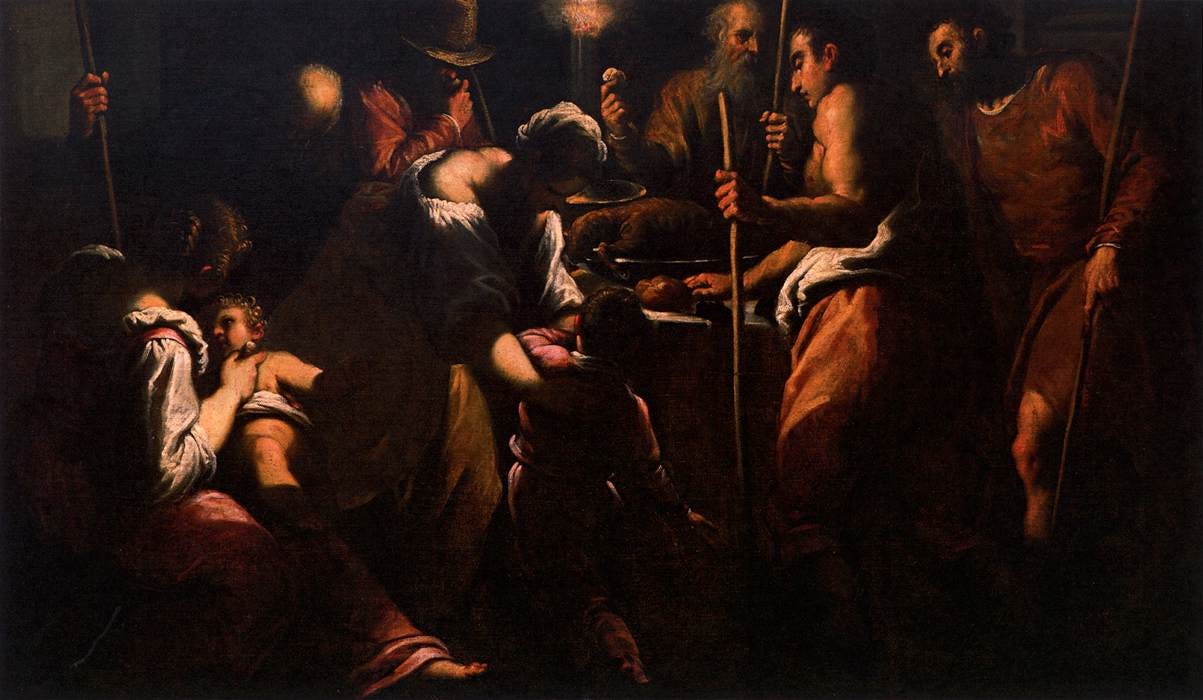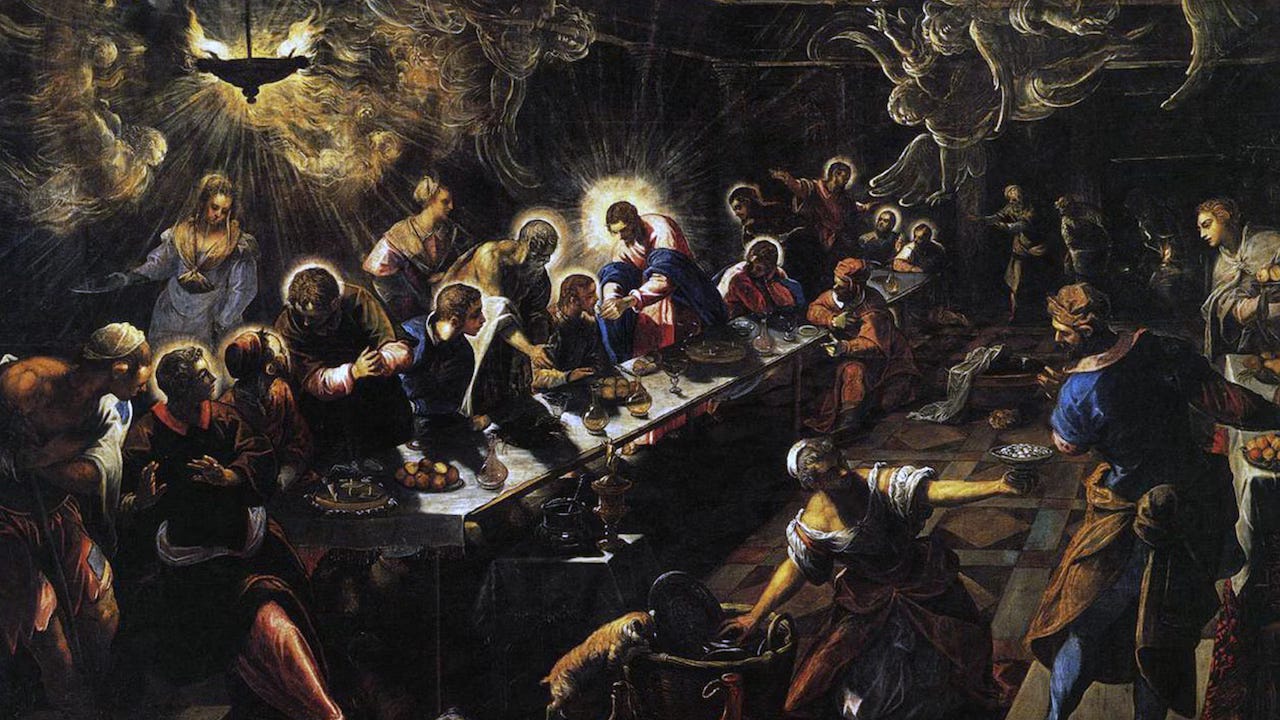The Case Against Closed Communion
“I do not pray for these alone, but also for those who will believe in Me through their word; that they all may be one, as You, Father, are in Me, and I in You; that they also may be one in Us"

I’d like to start this discourse off with a little humility. I am very open to the idea that I am wrong, and that the case I am about to offer against the practice of so called “closed communion” is heterodox. If that is the case, I will gratefully accept correction. However, thus far I have yet to be “convinced by proof from Holy Scripture, or by cogent reasons” that the practice of excluding Christians from the Lord’s table is supported in Holy Scripture. I invite dialogue on this point, and pray it is fruitful in leading us all into all truth.
With that out of the way, please allow me to make my case not against closed communion (as my alliterative title suggests), but rather for a communion shared by all those baptized Christians who rightly discern the Body and Blood of our Blessed Lord.
The Body of Christ, Broken By Us
There are few themes more preeminent in the New Testament than the call for unity among believers. Christ’s high priestly prayer in John 17 sets that tone which St. Paul continues throughout his epistles. The aborted apostle opens his first letter to the Corinthian church with an appeal to the same: “I appeal to you, brothers and sisters, in the name of our Lord Jesus Christ, that all of you agree with one another in what you say and that there be no divisions among you, but that you be perfectly united in mind and thought” (1 Corinthians 1:10). How heartbreaking it is then that the Church catholic has been split apart by sectarianism and political divisions. Such disunity has been the norm for all our history. Not even the apostolic age was free of such divisiveness. We broken men have broken the Body of our Lord apart into warring, anathema-slinging camps. Christ prayed we remain as one, but we so-called friends could not stay awake with Him for even one hour. Thanks be to God for His great mercy.
The divisions within the Church are here to stay. Barring the miraculous, our manmade schisms are scars that won’t heal this side of Heaven. So now we need to navigate them. Different tacks are taken. Some, such as our radical Papist brethren, emblazon “Salus extra ecclesiam non est” on blood-red banners, and fight even the most modest ecumenism. On the other hand, the radical ecumenists claim anyone possessing even a passing familiarity with the Bible is safely aboard the ark, and that all denominational differences can be discarded as merely human trifles. Both camps run aground on Scripture however. Our banner-toting exclusivists forget Christ’s words to His proud, sectarian disciples: “he who is not against us is on our side” (Mark 9:40 NKJV). So in love with their own pet dogmas or human institutions, these sectarians fail to see that God’s plans are far, far greater than any one group or denomination. However, the ecumenists err in the opposite way, flinging open the doors of the ark so wide that the waters rush in and the whole endeavor capsizes. These tend to forget that “wide is the gate and broad is the way that leads to destruction, and there are many who go in by it. Because narrow is the gate and difficult is the way which leads to life, and there are few who find it” (Matthew 7:13-14 NKJV).
We camels need to find a way to thread this needle. After all, there are certainly Christians outside the Lutheran church (as Luther himself taught), just as there are Christians outside the Roman Catholic, Reformed, Anglican, or Eastern churches. These Christians are our brothers, our fellow saints, marching under militant banners in spiritual warfare against the designs and powers of the enemy. Why should we Lutherans deny them a seat at our table?
Well, there is one good reason.
Hoc Est Corpus Meum

St. Paul, in the same letter he called for unity within the Corinthian church, writes: “Therefore whoever eats this bread or drinks this cup of the Lord in an unworthy manner will be guilty of the body and blood of the Lord. But let a man examine himself, and so let him eat of the bread and drink of the cup. For he who eats and drinks in an unworthy manner eats and drinks judgment to himself, not discerning the Lord’s body” (1 Corinthians 11:27-29). This is the sede doctrinae of Closed Communion as a practice. Yet does this passage call for doctrinal agreement on all things, as advocates for the practice seem to insist? Certainly it calls for pastoral concern,1 but must theological agreement be shared for the Supper to be celebrated? No. I contend that the Bible teaches only one truth must be affirmed by those partaking: that they partake in the True Body and True Blood of Jesus Christ. The only doctrinal requirement for the Eucharist taught in the Bible is belief in the True Presence. Belief that ‘is means is’ when the Word said “This is my body, broken for you.”
Now, it is only with great trepidation that one breaks with the catholic traditions of our most holy mother, the Church. Further I recognize she has always placed pastoral restrictions on the taking of Christ’s Body and Blood. For instance, the Didache, a second century handbook of Christian practice, taught: “Let no one eat or drink of your Thanksgiving (Eucharist), but they who have been baptized into the name of the Lord; for concerning this also the Lord has said, Give not that which is holy to the dogs” (Didache 9).
With that said, I don’t believe what I am proposing is a break with this ancient, time-tried tradition. Instead, I am seeking to return to a time before schism and anathema, when brothers who disagreed on doctrine could still sit together and raise a cup to God’s crucified Word. When the only requirement the writer of the Didache believed was necessary for partaking of Christ’s Body and Blood was baptism into the name of the Lord. Notice that there is no doctrinal requirement. Instead, those celebrating the Eucharist ought be baptized Christians (the Didache), rightly discerning the Body of our Blessed Lord (St. Paul).
Broken Bread, Scattered Over the Hills
Christian discernment may be the only requirement for admittance to the Lord’s Table, but it certainly isn’t the only regulation concerning the feast. Only a few verses earlier, St. Paul describes how “Therefore when you come together in one place, it is not to eat the Lord’s Supper. For in eating, each one takes his own supper ahead of others; and one is hungry and another is drunk” (1 Corinthians 11:20-21). To celebrate the Eucharist in a divided way, where there are factions and divisions, where some have much and others have nothing, nullifies the sacrament. Perhaps it is eisegesis, seeing as the text is appears to be dealing with divisions of wealth and prestige, but I can’t help but see here an implicit warning against divisions within the Body of any kind while celebrating the sacrament.
Rather than wielding the sword to separate the doctrinally pure from those who have let the leaven of the Pharisees cloud their eyes, St. Paul emphatically comes down on the side of Church unity and of love. We are not made Christian by right doctrine, or proper actions. We are made Christian through our faith in Jesus Christ. We are made Christian through the waters of baptism. Faith is more important than theology.2

In the Didache, when describing Holy Communion, the author paints a beautiful picture: “Even as this broken bread was scattered over the hills, and was gathered together and became one, so let Your Church be gathered together from the ends of the earth into Your kingdom; for Yours is the glory and the power through Jesus Christ forever” (Didache 9). Notice the illustration. Broken bread, as the opportunity for unity. “Let Your Church be gathered together from the ends of the earth.” When we, as faithful brothers, gather in celebration of the blessed Eucharist, we ought to do so discerning the Lord’s body, that is to say, His Church. After all, what is the Church but His Body, united as the communion of saints?3
Alas, as we look around us today, we see the bread Christ gathered has once again been scattered. Man has riven the Church with schism, to the point many see their Christian brothers as heretical foreigners. This is not the will of God, it is the fault of man. We need to find ways to navigate this reality. Lines do need to be drawn, ecumenical dialogue needs to be had. But let us not add insult to injury, by further imposing our will, dividing the Sacrament that St. Paul taught us is an occasion for Christian unity. Let us welcome all the baptized faithful to our Table, requiring only that they examine themselves and rightly discern the Body of Christ that was broken for them.
As we learn in 1 Corinthians 1:4, pastors are considered “as servants of Christ and stewards of the mysteries of God.” They have an incredible responsibility that the mysteries are treated with the reverence they deserve, and are not misused.
This is obviously a dangerous idea, as faith must be informed by theology. Saving faith comes from absolute reliance on the work of Jesus, which requires certain theological assertions. However, just as Luther taught there are faithful members of the Papal church, we cannot withhold faith from those who, in their weakness, do not understand their own reliance. We do not play God, we preach the Word and administer the Sacraments.
Let my Reformed brethren not see this as a tacit denial of Christ’s physical presence in the Bread and Wine. That teaching of our Blessed Lord I affirm with my whole heart. But I do believe Paul is playing on words in his writing here, teaching us to discern the Body and the Body.


